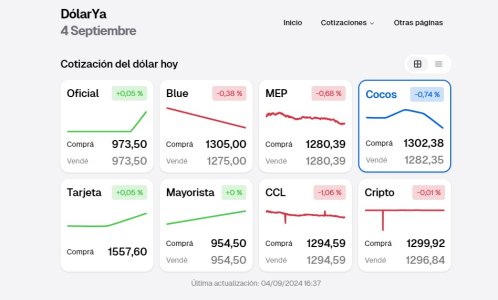Yes, the capital amnesty is the major factor directly influencing the value of the parallel dollar. In fact, dollar deposits increased by USD 5.5 billion under Milei, reaching their highest level since 2019. I'd advise you to exchange your dollars now because, according to Caputo, it will keep dropping until it matches the official rate.
El crecimiento fue del 38,5% en los últimos 10 meses y el stock alcanzó el nivel más alto desde el día posterior a las elecciones presidenciales de 2019. El aporte del blanqueo de capitales

www.infobae.com




